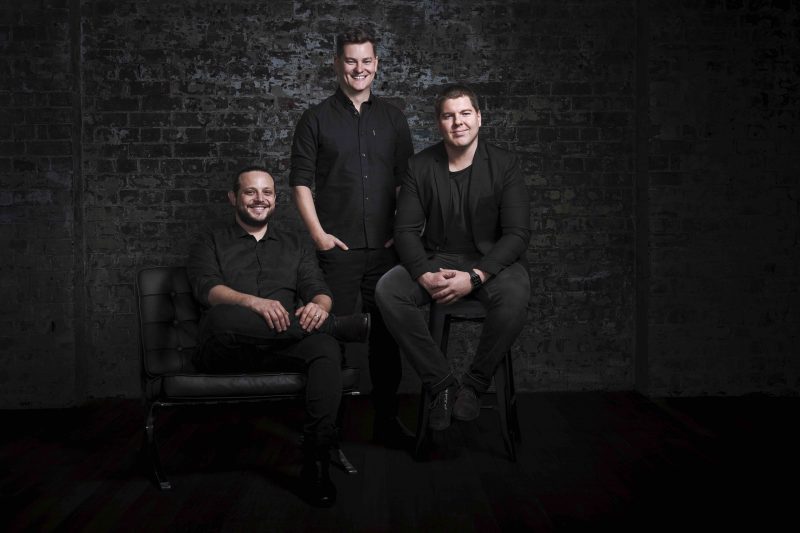‘We’re definitely not building a 2.0 of anything’: Aden Hepburn on leaving WPP and ‘picking the bones’ of holding companies
After 15 years in a holding group, former VMLY&R co-CEO, Aden Hepburn, has stepped out with independent agency, Akcelo. Here he talks to Mumbrella’s Zoe Wilkinson about what’s different, what’s better, and how – despite working with a number of the same people – the agency is coming into its own.
“I think going out on your own is probably scary at the best of times, and potentially equally as scary after spending 15 years in the one holding company,” Aden Hepburn says, reflecting on his departure from WPP AUNZ’s VMLY&R.
“I guess I looked at it as a training ground, being paid to learn how to run a business, learn the ropes, build the relationships and see how a big business truly operates.
“And going out on my own I’ve been able to use that experience to harvest the best bits and leave everything else behind.”

Dave Di Veroli, Miles Scott, Aden Hepburn have formed Akcelo

